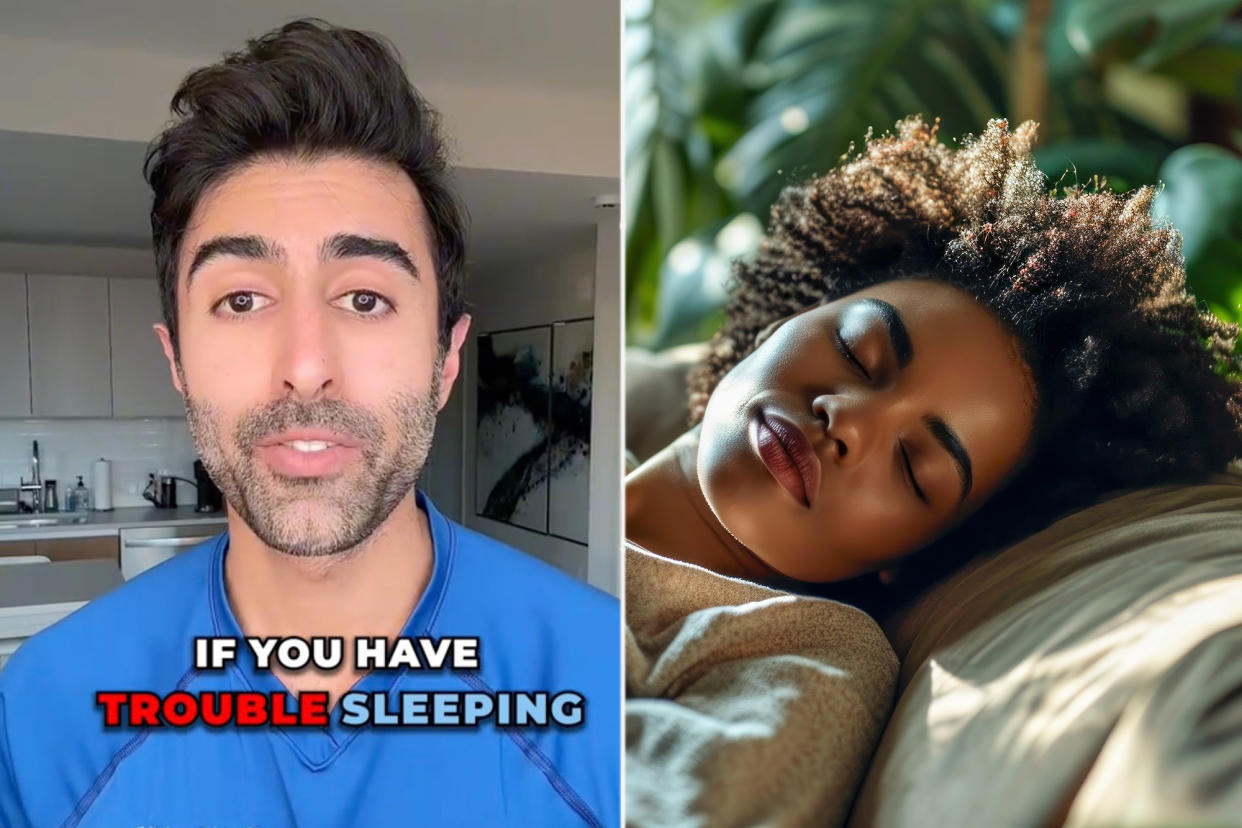This one simple exercise is the key to better sleep — trust me, I’m a doctor

Inhale and count to five.
Now exhale, while doing the same.
Feeling sleepy yet?
A social media-savvy Maryland M.D. revealed to his 2.2 million TikTok followers that this simple breathing exercise is the number one way to fall asleep faster after a long and stressful day.
Dr. Kunal Sood, a prolific poster on subjects ranging from the benefits of apple cider vinegar to the perils of drinking coffee and taking magnesium supplements at the same time (spoiler alert: they’re both laxatives) left tongues wagging earlier this week over his top tip for those struggling to get aboard the sleep train.
“The number one way to improve sleep, just hands down, is resonance frequency breathing. That’s it,” an unidentified man proclaims, before Dr. Sood pops up in agreement.
The exercise couldn’t be simpler — all it involves is “slowing down your breathing — inhaling and exhaling for a count of five,” he said.

“This will slow your breathing down the rate of about six breaths per minute and will increase your heart rate variability.
“When you improve your heart rate variability, this will activate your parasympathetic nervous system which will help decrease your sleep onset and improve your sleep quality.
“There is even research which shows that practicing resonance frequency breathing can reduce your anxiety and improve your cognitive performance,” Dr. Sood said.
The doctor’s claims are backed up by The National Institutes of Health which states: “Self-training in resonance breathing lowers stress, blood pressure and improves mood.”
Fans responded quickly to the clip, posted just a few days ago, many of them sharing their own experience with the easy-to-master breath technique.
“I do it all the time and since I started, I’ve been sleeping so good,” said one convert.
“This ABSOLUTELY works for sleep AND anxiety and when your cortisol spikes at 2am and 3am,” another reported.
“Do four to five breaths in, hold four to five seconds, release four to five seconds, and hold four to five seconds,” they suggested.
Still another practitioner revealed that they’d been doing the breathwork, but had no idea of the science behind it.
“I knew the five-five helped but now I know why, thanks!”
